A journey of a thousand miles begins with a single step: Chinese Philosopher Laozi
By Kashif-ul-Huda, TwoCircles.net
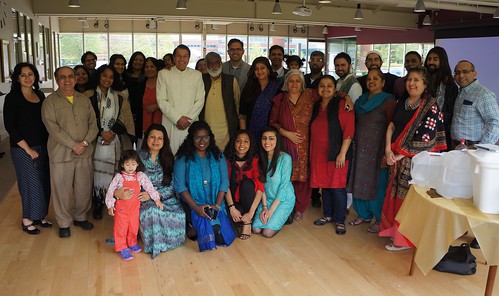
This month, TwoCircles.net – or TCN as it is popularly called – completes 10 years of its daily operations. When I started a daily news website in 2006 as a small step, I didn’t realize that I would be embarking on such a long momentous journey. I started alone on this journey but 10 years down the line, I am elated to share that hundreds of people have helped in this endeavor along the way.
On this occasion I feel privileged to thank all those people who have helped with time, money, ideas, news stories, article and access to their network of people.
On May 22, 2016, TCN officially held the 10-year anniversary celebration titled #TCN10 at Natick, on Boston outskirts in the US. It was a great chance to recall how far along we have come from ‘with just me in front of my laptop 10 years ago writing stories’ to today when ‘I gave a presentation on TCN’s journey to a room full of diverse community members’.
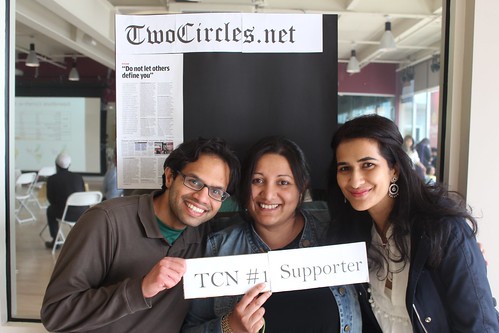
The program last Sunday was conceived, planned and executed by a diverse group of Indians from the diaspora – Muslims, Christians, Hindus, Buddhists and Sikhs.
Birth of TCN:
What started its life as IndianMuslims.info, quickly grew on its own. After the initial success as a daily news operation focusing only on Indian Muslims, I quickly realized that this operation required a full-fledged website of its own. In 2007, exactly a year after launching the daily news information site (IndianMuslims.info), I registered TwoCircles.net and rest, as they say, is history.
Our mission was simple – Right from the beginning, TwoCircles.net has been trying to challenge the stereotypes and one way we do that is by not replacing a negative stereotype with a positive stereotype but rather by showing the diversity that exist within the community.
We were very clear. Ours was going to be a website for Muslims and their stories and not for preaching Islam. There were already numerous websites for Islam and its propagation. We treated Muslims as a social group and used a language that was accessible to all. The rights-based and human-interest stories connected with readers, sometimes with those who were not even Muslims or even from India.
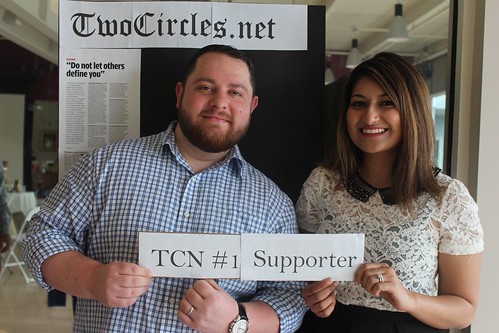
As with the readers of TCN, so with the audience members of #TCN10 event. For a website that has reporters only in India, there were NRIs, from first generation to third generation. We also had in audience people who claimed their heritage elsewhere in South Asia and even beyond. The message and mission of TCN somehow resonated with these people.
Presenting the diverse Indian Muslims
While covering “Indian Muslims” we realized that it is not one community but a combination of communities with as much diversity as you see in Indians in general. And what about the identity of Indian Muslims, or as Syed Shahabuddin have preferred to say, Muslim Indians? We all are carriers of multiple identities – I was born in Bihar, educated in missionary schools, lived in Jharkhand & Uttar Pradesh half of my life and now in different parts of the US. I am paid to do science and I am passionate about journalism as a tool for activism. How do I encompass all that in just two words: Indian Muslim?
Identities are not as clear cut as it is made out to be. Take the example of the MC of the #TCN10 program: Ali Zaidi, who did an excellent job as keeping the program together, was born in Australia to Shia Muslims from Lucknow. Now he lives and works in the United States. He is a great singer and very passionate about Indian culture, especially the music will tell you that he has not lived in India more than six months in total but India is still a big part of his life.
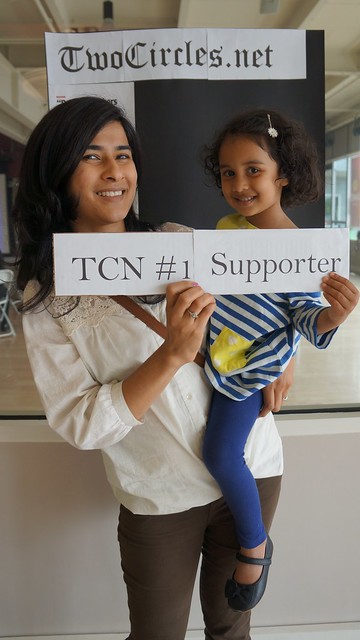
Let’s take another example: our keynote speaker was Naeel Cajee, a young dentist, who also works as an Imam at a local masjid. His grandfather left India for South Africa, his parents were born in South Africa while Naeel himself was born in California. Three generations and three continents later, the family has still kept the connection with India by running a school in Gujarat.
The road ahead:
#TCN10 was also an opportunity for us to think about what kind of future we want for this organization. We definitely want to continue to do the work that we are doing. In increasingly commercialized media space in India, TCN has become a place where story comes before monetary gains. We are able to do stories of the marginalized because we don’t have to turn our stories into click bait and make money by covering the whole screen with ads. But at the same time we need to expand our donor base in order to expand what we are doing and start more focused coverage of Dalits & Adivasis.
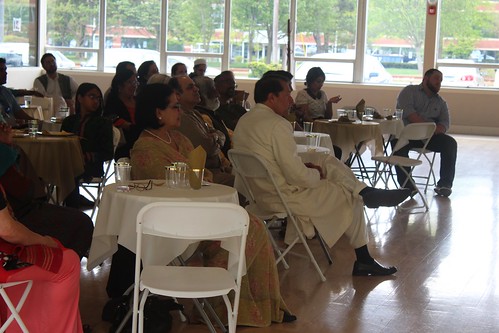
One of our avowed task is to provide a platform for young aspirants to learn the trade of journalism without bowing in to commercial interests. Take the example of Mohammad Ali, who started his career with TwoCircles.net and now works for The Hindu. In a video message for #TCN10, he said that some of the best work he has done in his career was when he worked for TCN. Needless to add, he continues to do fantastic work there too. Another example is of Mumtaz Alam Falahi, who has launched two news websites after his TCN stint. These are exactly the kind of rewards that any activist journalism portal can look forward to.
Awarding achievers:
And this brings us to the four awards that we gave out as part of the #TCN10 program. All of them accomplished members of the community, their professional work speaks volume but they went beyond their family and work to give time to empower the lives and future of their community.
‘Philanthropy Leadership Award’ was given to Frank Islam, who has made his millions years ago by selling his company to Ross Perot. He didn’t continue in the rat race of making more money but rather got involved in civic and political issues affecting the USA. Earlier this year, he donated $2 million to Aligarh Muslim University (AMU) to build a new School of Management complex and endow a ‘Chair for Entrepreneurship and Innovation at the AMU.’ This is the biggest donation AMU has received in its history and his generosity has established Islam’s commitment towards education and his home country.
Then there were three ‘Community Leadership Awards’ – for people who through their leadership are doing their bits to improve the lives of their community members.
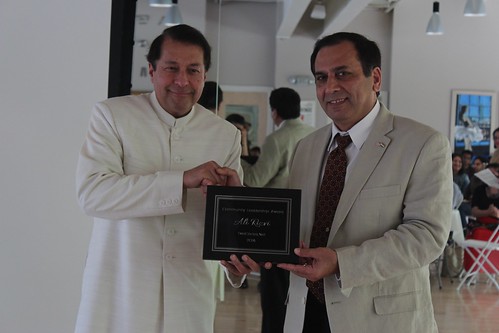
Ali Rizvi is the Chairman, Board of Trustees of the Federation of Aligarh Alumni Associations. Over the years, Ali Rizvi has provided valuable service to the Alig community ranging from helping AMU students in jobs to seeking wider recognition in the US in public and government for Sir Syed Ahmad Khan and working to improve the image of AMU in the United States.
Rizvi is the Global President, Vision-Aid. The mission of this organization is to help those who suffer from vision-related disabilities in under-served areas to lead lives of independence and dignity. Additionally, he has been part of many local cultural and community organizations.
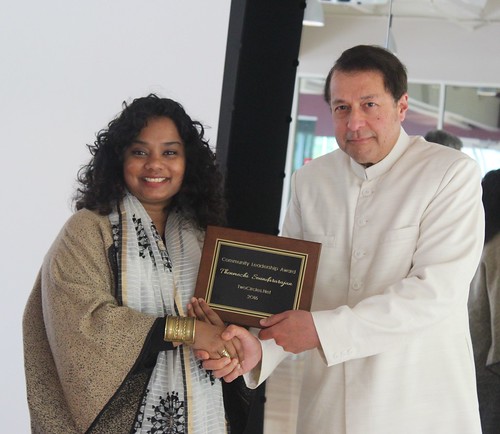
Thenmozhi Soundararajan is a filmmaker, singer, and a Dalit activist. As a second generation Dalit woman in the United States, she strives to connect grassroots Dalit organizers and movements in India and in the diaspora with media resources that can protect and widen their base of resistance. Through her work with #DalitWomenFight, #DalitHistoryMonth and more recently in the California Textbook Battles, she has centered the voices of Dalit communities in many of the vital debates of our time. She was also featured by Source Magazine as one of the top 10 political forces in hip hop. Her work has been recognized by the Producers Guild of America Diversity Program, MIT Center for New Media Studies and the Robert Rauschenberg Foundation.

Saqib Syed been a volunteer with the Indian Muslim Relief & Charities (IMRC) for the last 15 years, helping the organization with due diligence on projects in India and has served on the IMRC Board of Directors for the last five years. During his tenure as a Board member, he spearheaded the creation of the New England, NJ, NY, and Canada Chapters. He helped re-ignite the Summer Youth Internship program and has promoted the youth to take more responsibility on projects following their India visit. Saqib’s inclusive leadership and communication transparency has led to many top volunteers joining IMRC and pushing the envelope to change the lives of minorities in India.
From #TCN10 to #TCN100
From today we are also launching a campaign to get more people to join our Board of Patrons. Be a pillar of support for us, not just financial but moral, intellectual and social as well. We hope to raise $50,000 by the year end to start hiring more reporters to cover areas and topics that have remained untouched so far. In three years’ time, we hope to expand the operation where we will have budget of $100,000. It seems like a lot of money but if only 100 people give $1000, it we will be done. We already have 11 people committed to do that. Can you be the twelfth? Can our 10 years of work convince hundred people to commit a thousand each?
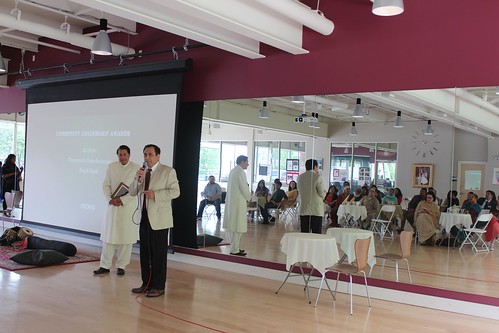
Be part of the #TCN100 – hundred people who are committed to this cause. Let’s write, rather re-write, the history of a non-profit media that can take ground-breaking journalism without relying on corporations and government money.

